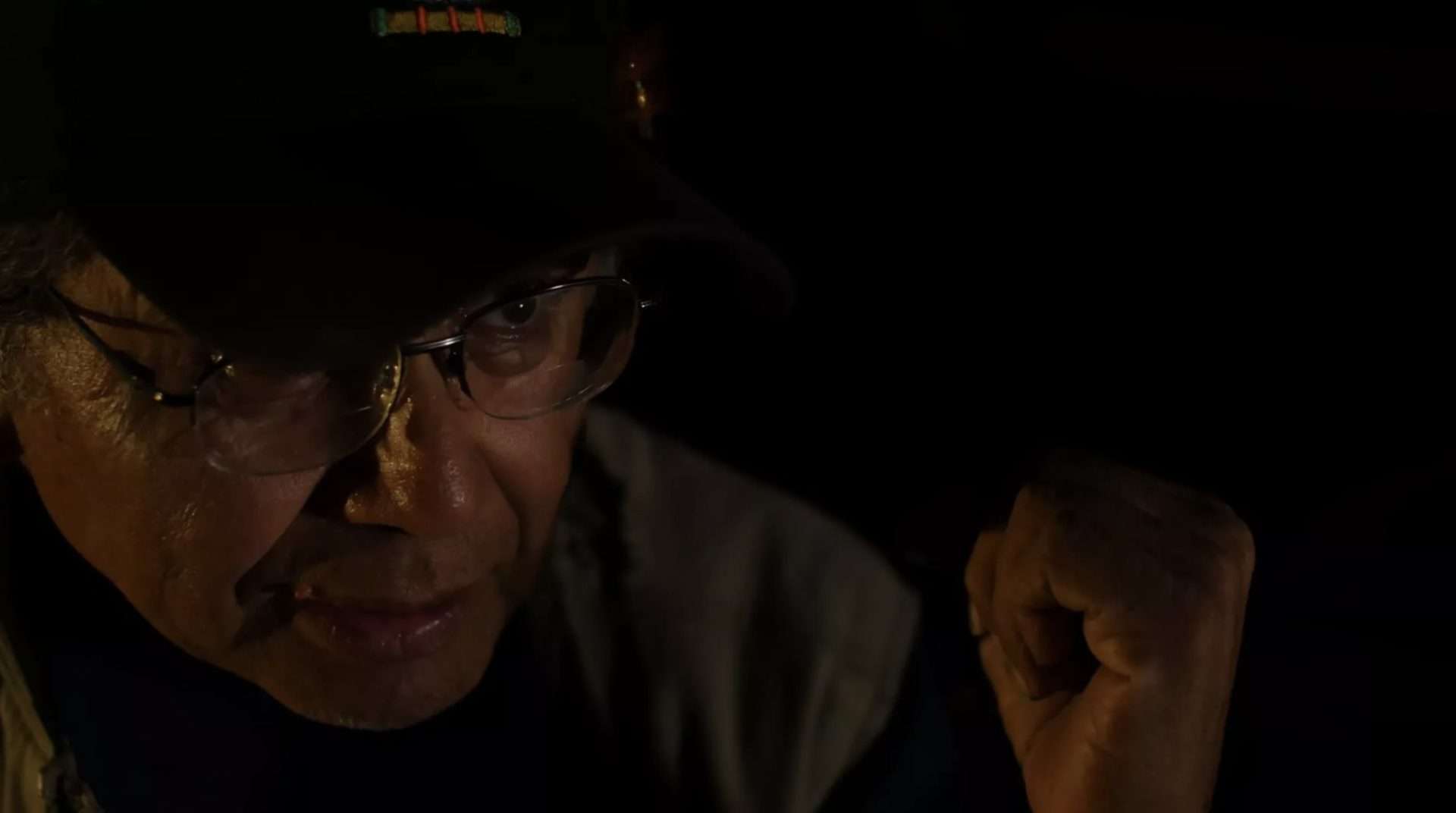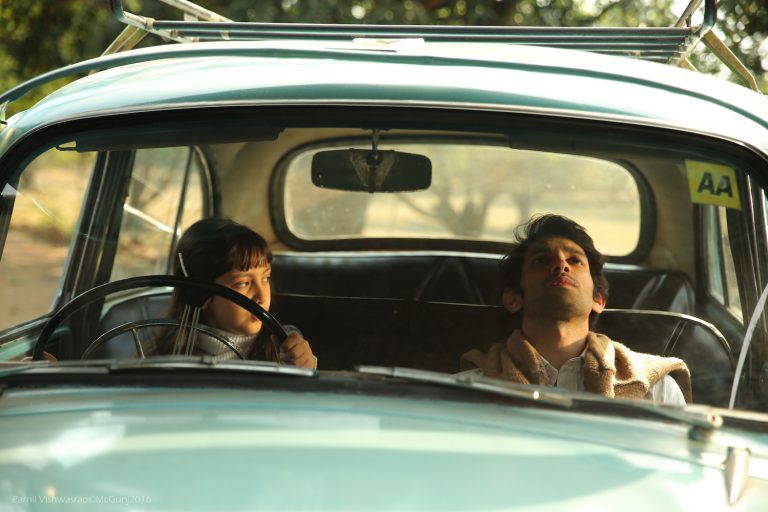“New Beginnings” (2025), directors Isabelle Ingold and Vivianne Perelmuter follow Native American Al Moon’s journey while looking back at his past. Living on the Indian reservation of Yurok, his sustenance has taken a hit. Fishing feed has been drying up. Once, there used to be great catches; now, the salmon are dying in huge numbers. The ocean is sick, he says almost matter-of-factly. Like him, this film desists from any mawkish gestures, full of a simple, workmanlike insistence on chugging ahead, adapting to life’s uncertain, shaky rhythms.
Why do I say ‘them’ when I talk of Native Americans with me being one? He confronts himself. As he retraces his time fighting during the Vietnam War, he asserts war was just a personal thing, not tinged with any patriotism. Yet, why did he find himself consumed in working for the white man when his people have been oppressed by them since time immemorial? Now, he no longer washes his hands off guns or any kind of arms, even as Trump rails for looser gun control in the name of security.
There’s so much in life that threatens to tie us down, trap us in a particular time, and impede any kind of forward motion. How do we take cognizance of this stasis and surge forth with openness and sincerity? The spectres of the past pin themselves down the more we don’t acknowledge its taproots, how it rips itself into identity and coming to terms with the way we wish to orchestrate our lives. With the desolate landscapes accentuating a doomed ecology and the corrosion of an unmediated self, “New Beginnings” wends through a Native American’s pursuit of selfhood, hemmed between systemic subjugation and survival increasingly precarious.
At its heart, “New Beginnings” reveals itself as a quietly intense excavation of the forgiveness we must offer ourselves. Hiding and denial only deepens the wounds, closes off growth, and stultifies us in a loop of endless torment, suffering, and unresolved guilt. The film is a reckoning with oneself, memories that seem to overwhelm and hold us down that have to be understood and negotiated in all their murkiness. To surpass their stifling clutch, we have to face them directly, even if it stings and aches. Buried in ourselves, we may be lost, grasping for clarity, closure, and transcendence. Sometimes, it takes rank strangers to unlock a way back to our recesses, wherefrom comes a possibility of healing. This film addresses the channel of edging towards peace and anchorage.

The past clings, especially if you try to run from it, Al remarks. He seeks to shuffle past the burden his memories evoke. His service in the Vietnam War is riddled with scars that need to be dealt with. He admits being scared at the prospect of meeting his squad members after forty-four years. In wars, man’s best and worst sides stand exposed. Therefore, he knows these men intimately, what they are capable of, the degrees they’ve gone to in any situation. How do they sit with their past, thoughts of their deeds in the cocoon of domesticity? It’s like a terrible secret binding Al and his squad members, the knowledge of what each has done and can hurtle to when pushed.
The past and the present intertwine to devastating results. The tone is gentle, affirming, and yet excoriating. There’s an emphatic earnestness with which the film approaches severely delicate matters and emotions lodged deep within. All of it leads up to a gut-wrenching confession, but Ingold and Perelmuter don’t mine the moment for shock, handling it with directness, candour and empathy. “New Beginnings” shines with piercing frankness, an inquiry to dig through without being intrusive and suffused with kind receptiveness.
Al’s life and philosophy unfurl at a pace he sets. As dignifying and respectful the film is towards him, it also evinces worry and anxiety over the circumstances and habitats Native Americans have to endure to this day. At any point, their world can wholly crash, stability wrenched away. How much can they keep up with reiterant undoing? This film charts an individual’s life with such a calm, unhurried, and profound sense of perspective that it flashes an urgent light at an entire identity that’s persistently vulnerable.






![Chhorii [2021] Review: Another Feminist-Horror Film, Lost in its Own Sugarcane Fields of Jump Scares & Bad Acting](https://79468c92.delivery.rocketcdn.me/wp-content/uploads/2021/11/Chhorii-2021-768x403.jpeg)
![Incredibles 2 [2018] : An Admirable Sequel to Its Classic Predecessor](https://79468c92.delivery.rocketcdn.me/wp-content/uploads/2018/06/thumb-1920-927008-768x402.jpg)
![Raame Aandalum Raavane Aandalum [2021]: ‘Prime Video’ Review – Political Satire has it’s heart in the right place, but little else](https://79468c92.delivery.rocketcdn.me/wp-content/uploads/2021/09/Raame-Aandalum-Raavane-Aandalum-1-highonfilms-768x432.jpg)